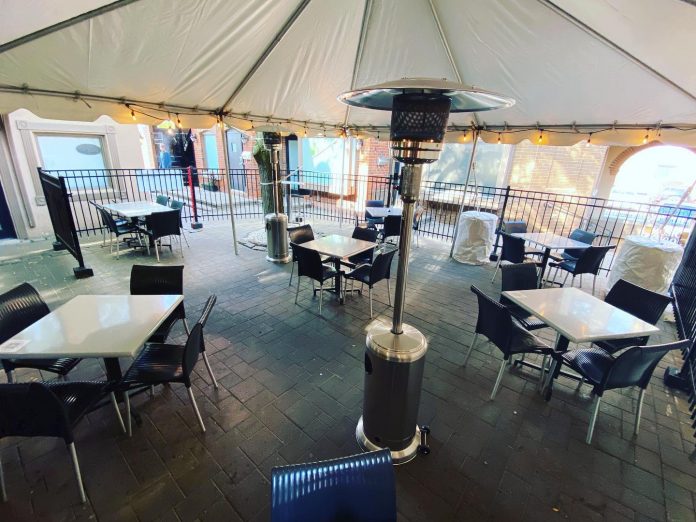With cooler weather upon us, restaurants, bars, cafes and individuals are using patio heaters to extend the use of their patios and outdoor dining areas into the fall and winter seasons. While these fuel-fired heating units provide welcome warmth and comfort while dining alfresco, they can also pose a danger if they are not installed, operated, and maintained correctly.
With Fire Prevention Week running from October 4-10, the Technical Standards & Safety Authority (TSSA), the Ontario Association of Fire Chiefs (OAFC) and the Canadian Propane Association have partnered to educate the hospitality industry and the public about potential fire and carbon monoxide hazards associated with the improper use of patio heaters, and to provide guidelines for their safe use in outdoor settings.
Patio heaters, both portable and fixed, open-flame units are designed for outdoor use only in open areas away from combustible materials. If used inside a tent or other enclosure or near flammable tablecloths or paper products, there is a risk of fire or carbon monoxide poisoning. Carbon monoxide is a leading cause of accidental poisonings in Ontario every year and can be fatal.
“With cooler temperatures, many establishments are still using their outdoor dining spaces by adding different types of portable heaters,” said OAFC President, Chief Cynthia Ross Tustin. “Not only do portable heaters need to be installed, used, and maintained correctly, they must also be a safe distance from flammable objects, and be properly ventilated. It is imperative that proper safety precautions are followed to prevent damage to property, injuries, or worse, a fatal incident.”
“The proper installation, use, or storage of propane cylinders, and other fuels contributes to a safe environment when using propane appliances,” says Nathalie St-Pierre, President and CEO of the Canadian Propane Association. When propane cylinders are not connected to an appliance, they are considered to be in storage and should never be kept indoors. They must be stored in an upright position, three feet from any building opening and 10 feet from any mechanical air intake, sidewalks and adjoining property occupied by schools, churches, hospitals, athletic fields or other points of gathering. They must be safeguarded with tamper-proof, vehicle-proof protection, such as a locked cage or fenced-in area. Smoking is prohibited near stored propane cylinders.
“Our inspectors have reported seeing some propane cylinders stored inside buildings or unprotected in parking lots,” says John Marshall, Director, Fuels, Technical Standards & Safety Authority. “We recognize that some restaurants and bars have not operated patios before and may not be aware of the potential hazards associated with patio heaters and propane cylinders. We hope our Patio Heater Safety Guidelines will serve as a valuable reference.”
Fixed fuel-fired appliances, including fire pits, fireplaces and tabletop units present additional fire hazards caused by open flames. These units must be installed by a TSSA-certified technician.
“With patio heaters in short supply due to impacts from the COVID-19 outbreak,” says Chief Tustin, “restauranteurs should note that construction heaters or those fired with kerosene, gasoline or diesel fuel should never be used in a commercial establishment.”
Owners and operators of outdoor patios and dining areas are responsible for the safe installation, operation and maintenance of their patio heating units. They must abide by all safety instructions outlined in the operating manual for their heating appliances, ensure staff understand how to safely operate the heating units and handle propane cylinders, and are urged to consult and follow the TSSA’s Patio Heater Safety Guidelines and local fire department guidelines.








